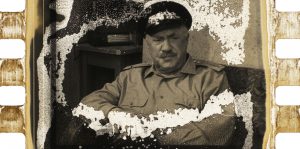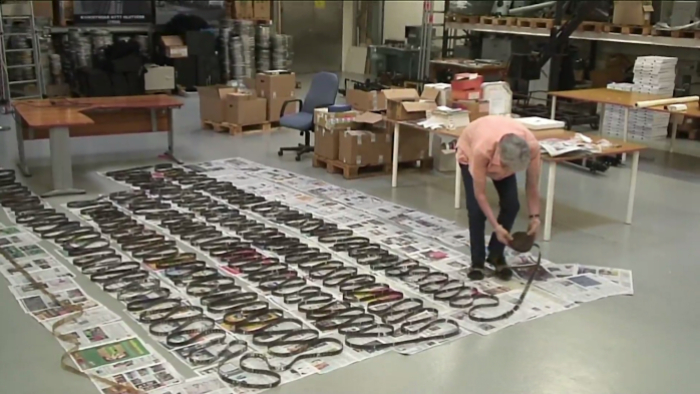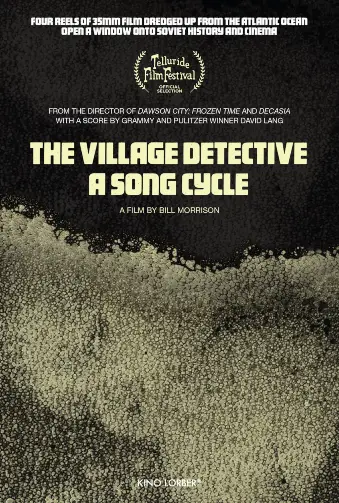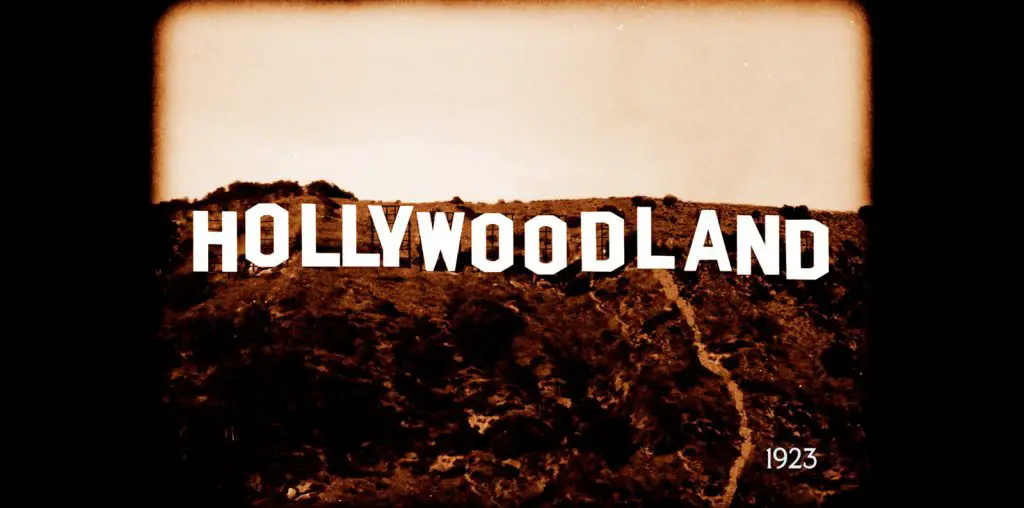
A rare glimpse into the barely-plumed well of Soviet-era films, a retrospective of a great Russian actor, and a sublime love letter to cinema of yore, writer/director Bill Morrison’s documentary The Village Detective: a song cycle casts a hypnotic spell that lingers long after the credits roll. Perhaps its intended effect will be truly felt only by the most impassioned of cinema connoisseurs. Still, one doesn’t have to be a scholar to be at least a little spellbound by the combination of grainy, at times purposefully garish visuals and David Lang’s otherworldly score. This is as close as it gets to stepping back in time into an era that still lingers, shadow-like, in many people’s hearts.
Mikhail Zharov was one of the most popular Russian actors of the Soviet era, appearing in 70 movies and over 100 stage productions throughout a career that spanned seven decades. So when, in 2016, a film titled Village Detective, starring Zharov, was “caught in the net of an Icelandic trawler,” Icelandic composer Jóhann Jóhannsson felt compelled to contact Morrison, his long-time friend. “I thought you might be interested,” he wrote. The rest is quite literally history.

“…canisters containing four reels of film lay for decades on the ocean floor…”
The canisters containing four reels of film lay for decades on the ocean floor, which – luckily – was rich in hydrogen sulfide; consequently, the content was, for the most part, preserved. With the rust scrubbed away and the mud cleared off, images appeared. Morrison presents those images, unfiltered, with subtitles guiding the viewer through the simple, sometimes goofy, but oddly resonant plot. Zharov’s titular lead, a district police officer investigating an accordion theft, haunts every distorted, smudged, jarring shot. In-between, The Village Detective: a song cycle throws a retrospective glance at Zharov’s prominent career – the actor played a prominent role in Sergei Eisenstein’s Ivan the Terrible, among many others – barely resorting to a single interviewee for context.
The bulk of The Village Detective: a song cycle is a narration-free symphony, a fusion of images and sound. Zharov, famous for his accordion skills, is seen playing the instrument in various scenes. His music subtly morphs into Lang’s distinctly modern, ominous, lyrical variation. The political context of movies made during the Stalin regime is touched upon, as is how it affected Zharov’s career, which blossomed before wilting and then perhaps found a moment of resurrection. The director speaks to the beauty and longevity of cinema and the power and resilience of our past. But it’s that interplay between sound and sight that proves the most penetrating. No talking head, or eloquent analysis, could be as powerful as that uncanny synthesis.
Village Detective turned out to be no rarity. Beloved by audiences but sneered at by critics upon release, it now seemingly reveals little about its lead actor, its sociopolitical regime. Its place in cinematic history seems minor, insignificant even. And yet, here it is, preserved after decades of dwelling in the depths of the merciless ocean. Drenched by salt and corroded by time, it’s viewed through a contemporary prism by Morrison, and it’s a joy and a wonder to view it along with him.

"…it’s that interplay between sound and sight that proves the most penetrating."



[…] post The Village Detective: a song cycle first appeared on Film […]